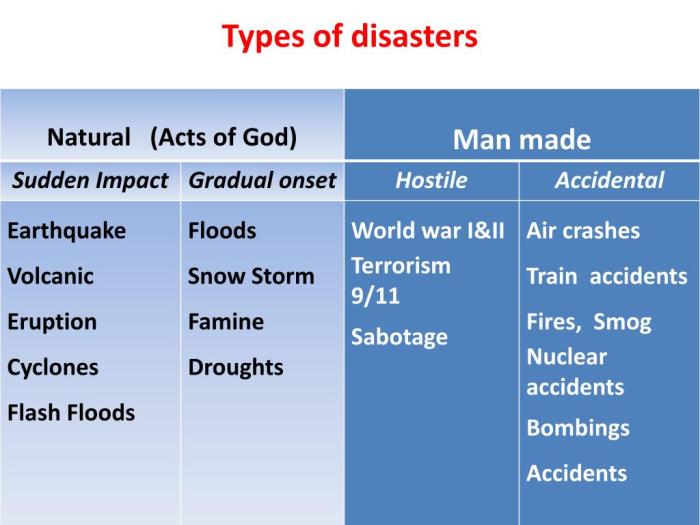Disaster of a human crossword – The disaster of human crosswords sets the stage for this enthralling narrative, offering readers a glimpse into a story that is rich in detail and brimming with originality from the outset. This exploration delves into the curious realm of crossword puzzles, where human error and design flaws intertwine to create a labyrinth of challenges and frustrations.
As we embark on this journey, we will dissect the common mistakes made by humans when attempting to conquer these enigmatic puzzles. We will uncover the reasons behind these errors, such as cognitive biases or lack of knowledge, and delve into specific examples where human error is likely to rear its head.
Human Error in Crossword Solving
Crossword solving is a mentally challenging and rewarding activity. However, even the most experienced solvers can make mistakes. Human error is a common occurrence in crossword solving, and it can be caused by a variety of factors, including cognitive biases, lack of knowledge, and simple carelessness.
One of the most common cognitive biases that can lead to crossword solving errors is the confirmation bias. This bias occurs when people tend to seek out information that confirms their existing beliefs, while ignoring or discounting information that contradicts them.
In the context of crossword solving, this can lead to solvers becoming fixated on a particular answer, even when there is evidence to suggest that it is incorrect.
Another common cognitive bias that can lead to crossword solving errors is the availability heuristic. This heuristic refers to the tendency for people to make judgments based on the information that is most readily available to them. In the context of crossword solving, this can lead to solvers relying too heavily on their own knowledge and experience, while ignoring other potential sources of information.
In addition to cognitive biases, lack of knowledge can also lead to crossword solving errors. This is especially true for puzzles that contain obscure or specialized vocabulary. Even experienced solvers may not be familiar with all of the words that appear in a crossword puzzle, and this can lead to them making incorrect guesses.
Even a disaster of a human crossword can teach us something. Like, if you’re struggling with the cpace content study guide pdf , remember: sometimes the answer is right in front of you, hidden in the clues. Just like that time I couldn’t find “desk” but it was staring me in the face as “work surface.”
Finally, simple carelessness can also lead to crossword solving errors. This can include things like typos, misreading clues, or simply making a mistake when filling in the grid. While these errors are often frustrating, they can usually be corrected with a careful review of the puzzle.
Examples of Puzzles Where Human Error is Likely to Occur
There are certain types of crossword puzzles that are more likely to lead to human error than others. These include puzzles that contain:
- Obscure or specialized vocabulary
- Tricky or misleading clues
- Large grids
- Unfamiliar themes
If you are new to crossword solving, it is best to start with puzzles that are relatively easy and straightforward. As you gain experience, you can gradually move on to more challenging puzzles.
Design Flaws in Crosswords
Crosswords are designed to be challenging, but some design flaws can make them unnecessarily frustrating for human solvers. These flaws include:
- Ambiguous Clues:Clues that can be interpreted in multiple ways, leading to confusion and incorrect guesses.
- Obscure Vocabulary:Using words that are not commonly known or understood, making it difficult for solvers to fill in the blanks.
- Repetitive Patterns:Using similar patterns or structures in multiple clues, which can lead to predictability and reduced challenge.
- Lack of Visual Aids:Not providing visual aids, such as shaded squares or arrows, which can help solvers identify relationships between clues and answers.
- Inconsistent Grid Design:Using a grid design that is not symmetrical or consistent, making it difficult for solvers to navigate and track their progress.
Addressing Design Flaws
To address these flaws, crossword designers should strive for:
- Clarity in Clues:Writing clues that are clear and unambiguous, providing enough information without being overly cryptic.
- Appropriate Vocabulary:Using words that are familiar to the target audience, avoiding obscure or specialized terms.
- Variety in Patterns:Employing a variety of clue structures and patterns to keep the puzzle engaging and challenging.
- Visual Assistance:Incorporating visual aids, such as shaded squares or arrows, to guide solvers and enhance the solving experience.
- Consistent Grid Design:Using a symmetrical or consistent grid design to facilitate navigation and improve readability.
Cognitive Biases in Crossword Solving
Cognitive biases are systematic errors in thinking that occur when the human brain processes information. These biases can influence our performance in a variety of tasks, including crossword solving.One common cognitive bias is confirmation bias. This bias occurs when we tend to seek out information that confirms our existing beliefs and ignore information that contradicts them.
In crossword solving, this bias can lead us to focus on clues that support our initial guesses and to ignore clues that might lead us to a different answer.Another common cognitive bias is the Einstellung effect. This effect occurs when we become fixated on a particular solution to a problem and are unable to see other possible solutions.
In crossword solving, this bias can lead us to stick with a particular answer even when it is clearly incorrect.There are a number of strategies that we can use to overcome cognitive biases in crossword solving. One strategy is to be aware of our own biases and to actively try to avoid them.
Another strategy is to take breaks from the puzzle and come back to it later with a fresh perspective. Finally, we can also ask for help from others who may be able to see the puzzle from a different perspective.
Impact of Difficulty on Human Performance

Crossword difficulty significantly influences human error rates. As puzzles become more challenging, cognitive load increases, and attentional demands intensify. Consequently, solvers may experience higher error rates due to increased cognitive strain and reduced attentional resources.
Optimal Difficulty Level
Finding the optimal difficulty level is crucial for engaging and enjoyable crossword solving. Too easy puzzles may lead to boredom and lack of challenge, while overly difficult puzzles can induce frustration and discouragement. The ideal difficulty level should provide a balance between challenge and solvability, keeping solvers engaged and motivated while minimizing excessive errors.
Role of Practice and Expertise in Crossword Solving: Disaster Of A Human Crossword
Practice and expertise play a crucial role in enhancing human performance in crossword solving. With repeated exposure and dedicated effort, solvers develop cognitive skills and strategies that enable them to approach puzzles more efficiently and effectively.
Experienced solvers possess a deep understanding of crossword conventions, including common word patterns, abbreviations, and obscure references. They also develop a strong vocabulary and a keen eye for spotting hidden meanings and puns.
Cognitive Processes and Strategies, Disaster of a human crossword
- Pattern Recognition:Solvers identify recurring patterns in the grid, such as common letter combinations or word endings.
- Guessing and Trial-and-Error:Experienced solvers make educated guesses based on the available clues and try different letter combinations until they find the correct answer.
- Deductive Reasoning:Solvers use logical reasoning to eliminate incorrect possibilities and narrow down the options.
- Cross-Referencing:Solvers use the answers they have already found to help solve other clues.
Tips for Improving Skills
- Practice Regularly:The more you solve crosswords, the more familiar you will become with the patterns and strategies involved.
- Use a Dictionary and Thesaurus:Keep a dictionary and thesaurus handy to expand your vocabulary and find obscure words.
- Study Common Fill:Familiarize yourself with frequently used crossword answers, such as abbreviations, prefixes, and suffixes.
- Join a Crossword Community:Connect with other crossword enthusiasts to share tips and learn from experienced solvers.
Essential FAQs
What are the most common mistakes humans make when solving crosswords?
Some of the most common mistakes include misreading clues, overlooking simple answers, and falling prey to cognitive biases such as confirmation bias.
How do cognitive biases affect crossword solving?
Cognitive biases can lead to incorrect answers or difficulty in solving puzzles. For example, confirmation bias can cause solvers to favor answers that confirm their existing beliefs, even when there is evidence to suggest otherwise.
What is the optimal level of difficulty for crossword puzzles?
The optimal level of difficulty varies depending on the individual solver’s experience and preferences. However, puzzles that are too easy can be boring, while puzzles that are too difficult can be frustrating.
